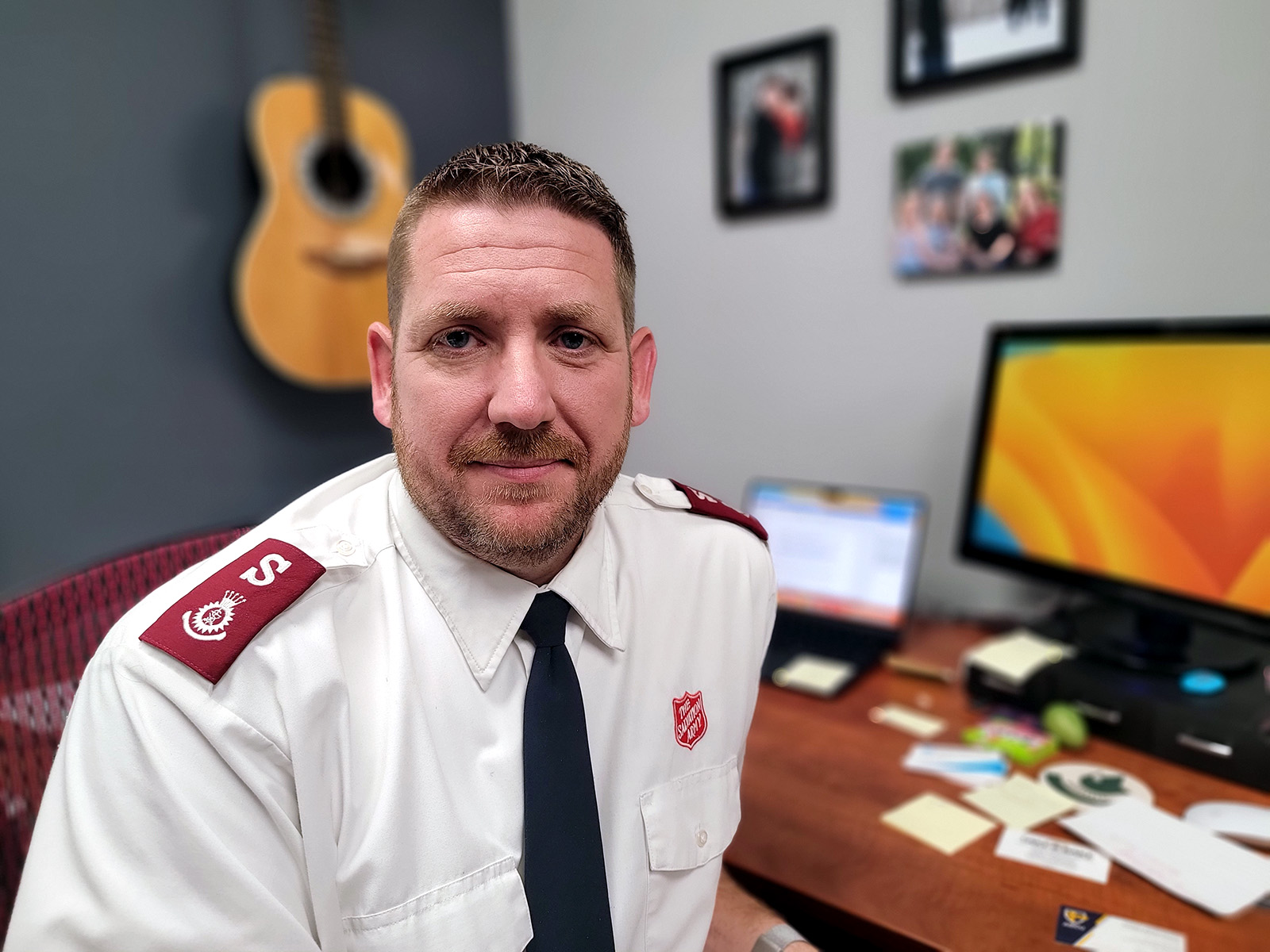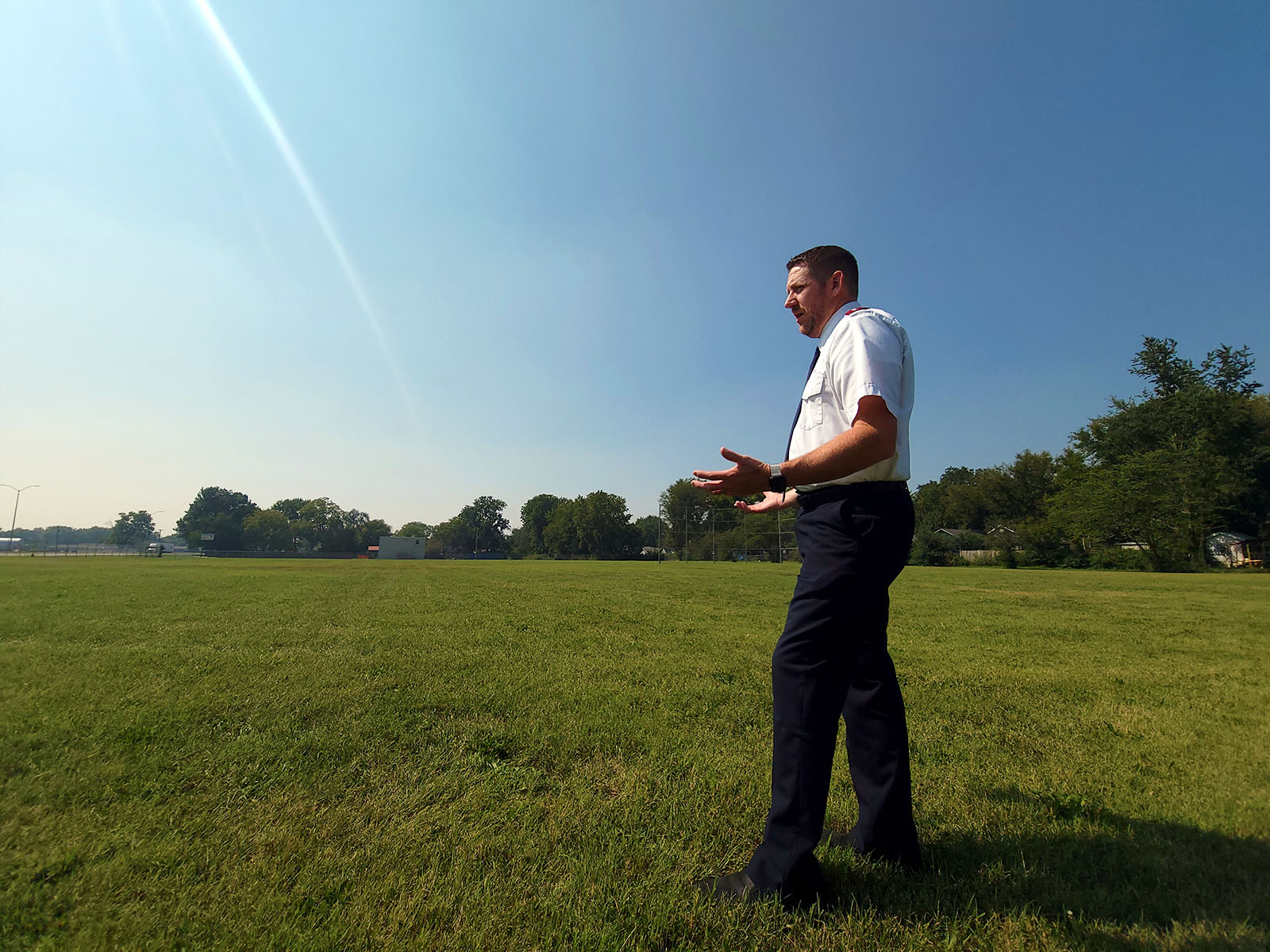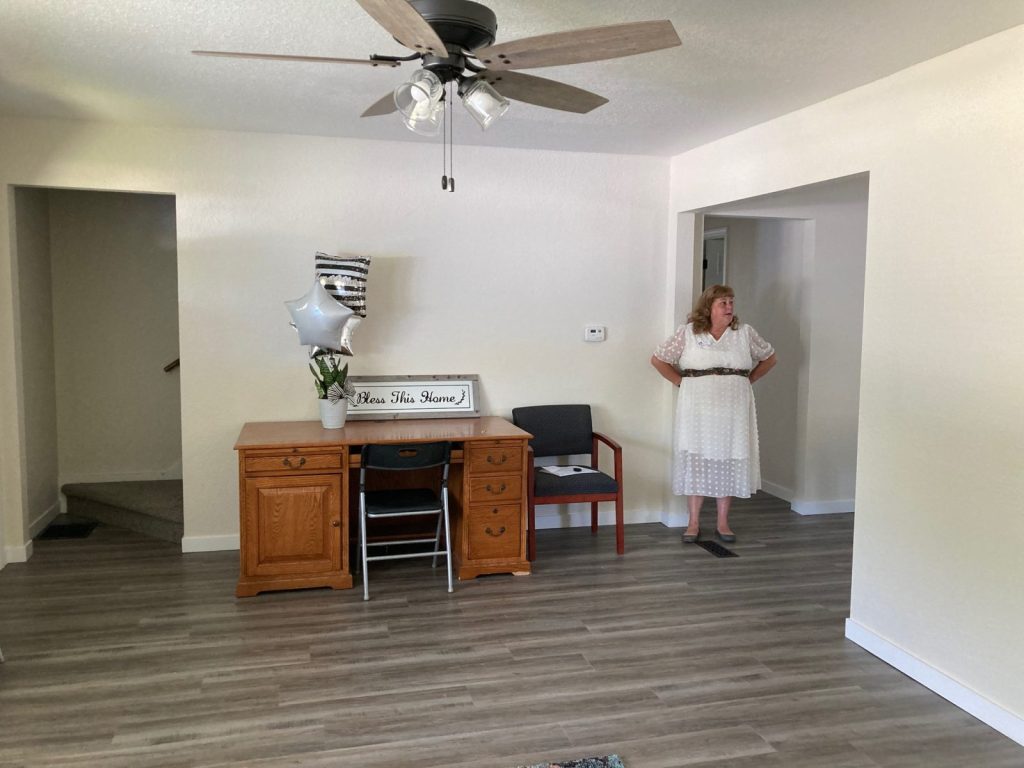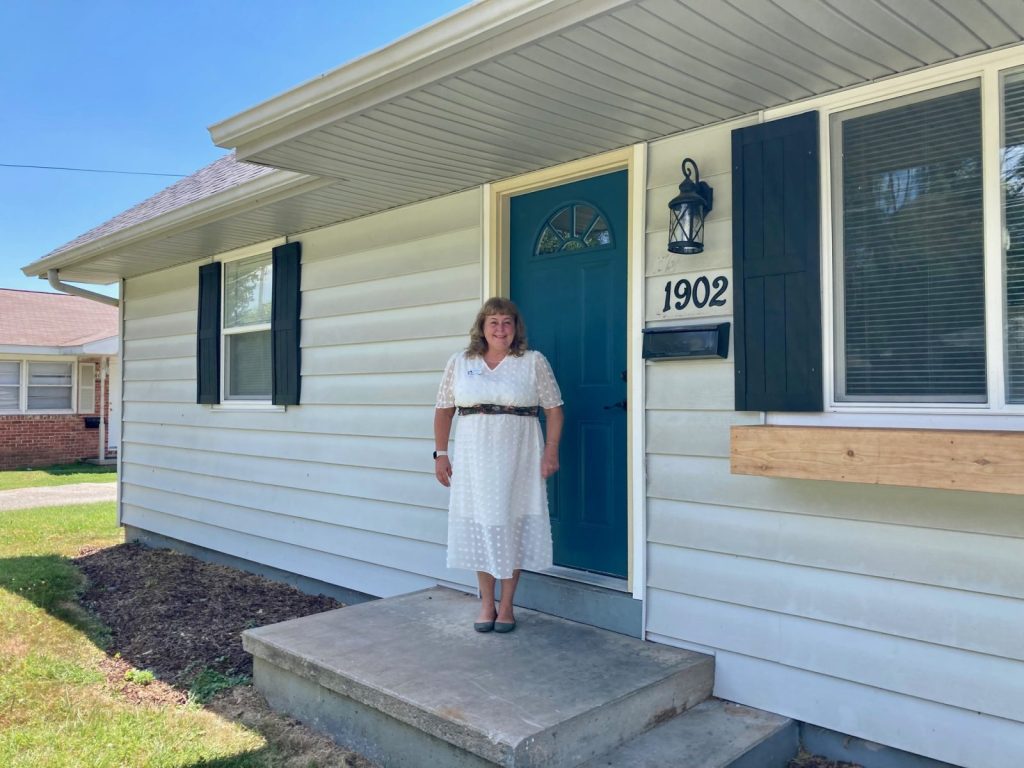Springfield has nearly $1.9 million available to put roofs over the heads of unsheltered persons. Three organizations stepped forward with hopes of getting the money.
Women’s Medical Respite, Council of Churches and the Salvation Army each submitted letters of intent by the Sept. 8 deadline, proposing the basic details of their projects. Full proposals are due Oct. 9.
HOME-ARP is a federal program that provides funding to reduce homelessness and increase housing stability across the United States.
Bob Atchley, the City of Springfield’s Senior City Planner, explained that the funds could possibly be divided between more than one organization.
“We’re hopeful that whatever organization it is, they can bring other sources of funding to the table and they potentially can bring other grant funds or private funds they’ve raised,” Atchley said.
HOME-ARP requires the funds be used strictly for the construction or renovation of a building, not staffing.
Following the Springfield City Council's approval this summer, these HOME-ARP funds may be used for either congregate or non-congregate shelter space. In congregate shelters, occupants share bathrooms and other common areas. Non-congregate shelters are those in which each individual or family has a private living quarter and do not share any type of common dining room or other facility.
Selections will be made by early next year, and the projects must be completed by Dec. 31, 2026.
Here’s a snapshot of what each organization hopes to create:
Salvation Army’s Lives Transformed project: Men's shelter
In its letter of intent, the Salvation Army of Springfield asked for the full $1,861,680 for the nonprofit’s Lives Transformed capital project. The scope includes expanding and relocating the Harbor House shelter for homeless men, expanding the Family Enrichment Center and building a food pantry.

If the project is approved to receive HOME-ARP funds, that money will be used to build a new and bigger Harbor House.
Currently, the Harbor House shelter and transitional housing support center is housed in an 85-plus year old building in downtown Springfield. It has 31 beds, 26 beds for the Salvation Army’s program and five are set aside to be used as medical respite beds.
The new Harbor House would be located on property adjacent to the Salvation Army’s headquarters and Family Enrichment Center at 1707 W. Chestnut Expressway.
According to the letter, the construction of the new Harbor House will add 29 program beds and 15 crisis cold weather shelter beds.
“Our goal is to be able to better serve with dignity the individuals that are seeking shelter with us,” said Amos Shiels, head of the Salvation Army in Springfield. “We’ll be able to double our support to men in the area looking for not just for shelter. It’s really a long term transitional program.
“Our goal is to work and walk alongside participants who may just be down and out,” Shiels said. “We walk alongside them in helping them to set goals and fulfilling and succeeding in their goals.”

According to the letter, a preliminary budget indicates the Salvation Army’s project will include $6.7 million for constructing the new Harbor House, $750,000 for expanding the Family Enrichment Center, $1.9 million for the food pantry and about $519,000 in architect fees.
“If we’re able to get funding and support from the city, that just adds to the validity that we’re headed in the right direction,” Shiels said, “(and that) the city really does see that there is a need for additional space and additional beds, and they believe in us and they trust us to be able to fulfill that.”
Council of Churches wants to create permanent home for Safe to Sleep
The Council of Churches of the Ozarks, the faith-based non profit organization that operates Safe to Sleep, is requesting $1.1 million to help purchase and renovate a property suited for the construction of a permanent shelter for Safe to Sleep.
According to the letter of intent, Safe to Sleep provides overnight shelter for more than 400 women over the age of 18 every year, many of whom struggle with physical and mobility challenges.
For years, Safe to Sleep has operated as an overnight shelter for homeless women. It was housed inside the gymnasium of a church in northwest Springfield.
In addition to shelter, Safe to Sleep offers case management services. Those direct support services have resulted in permanent housing solutions for more than 140 women within the last five years.
“Currently, STS provides shelter through a partnership with the incredible congregation of Pathway United Methodist Church,” the letter reads in part. “Unfortunately, this location only allows for programming outside of regular church hours. STS guests may arrive only after 7:30 p.m. and must leave just after 7:30 a.m. This leaves them vulnerable during extreme daytime weather conditions, as well as limits our ability to offer purpose driven programming during the day. STS program offices are not located on-site, which further complicates the ability to serve our guests from this temporary location.”
According to the letter, Safe to Sleep partnered with Drury University architecture students to research best practices for congregate shelter. The Drury students helped create a plan, complete with design renderings, to build a dedicated shelter adjacent to the Council of Churches of the Ozarks in northeast Springfield.
The new shelter building would initially accommodate 50 individuals, which is a 30 percent increase over Safe to Sleep’s current average nightly bed count.
“With a permanent facility, STS will be able to seamlessly integrate STS guests with other CCO support services as well as increase access to capacity building services during the day,” the letter reads. “While our plan is not to greatly increase our shelter capacity, we are motivated by the very real opportunity to provide more meaningful resources, authentic relationships, and measurable quality of life improvement for our guests.”
According to the letter, a $1.1 million grant from the city’s HOME-ARP program would be combined with a matching grant received from the Missouri Department of Economic Development to purchase a building located next to the Council of Churches headquarters at 3055 E. Division St.
Women’s Medical Respite seeks help financing recently purchased home
The Women’s Medical Respite requested $137,000 to help finance the home the nonprofit recently purchased.
The Women’s Medical Respite is a nonprofit organization that gives medically-fragile unsheltered women a place to recuperate and rest. It is currently housed in an apartment at The Kitchen, Inc.’s emergency shelter and has three beds. Two of those beds are on the second level, which creates a challenge for women with mobility issues.

The organization closed on a five-bedroom house in east Springfield in July. The $230,000 home was purchased in part with funds from the American Rescue Plan Act (ARPA) as well as two substantial donations from private donors and endowment funds from an anonymous donor. The nonprofit still owes about $150,000 on the home.
If the organization receives the HOME-ARP contract, the funds will be applied primarily to the mortgage.
“The new facility will have space for eight beds, an increase of five beds from the three beds in our current apartment at The Kitchen, Inc.,” the letter reads in part.
The Women’s Medical Respite expects ultimately to serve about 85 women in a typical year, up from the 35 to 40 women who can be accommodated annually in the apartment at The Kitchen’s shelter.
Abigail Cool, WMR’s executive director, said the program cannot move into the recently purchased house until the first-floor bathroom is remodeled to be compliant with the American Disabilities Act.


